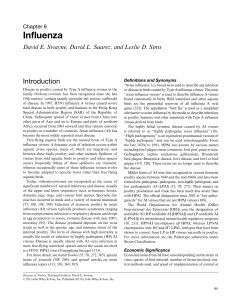Болезни раб.тетр
advertisement
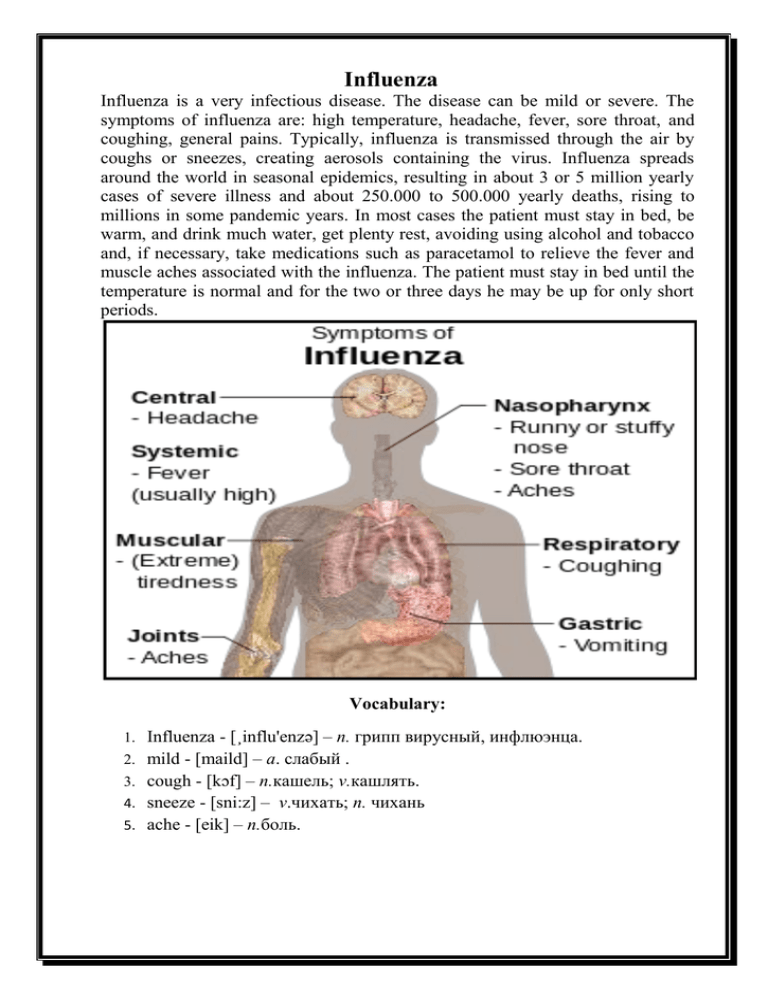
Influenza Influenza is a very infectious disease. The disease can be mild or severe. The symptoms of influenza are: high temperature, headache, fever, sore throat, and coughing, general pains. Typically, influenza is transmissed through the air by coughs or sneezes, creating aerosols containing the virus. Influenza spreads around the world in seasonal epidemics, resulting in about 3 or 5 million yearly cases of severe illness and about 250.000 to 500.000 yearly deaths, rising to millions in some pandemic years. In most cases the patient must stay in bed, be warm, and drink much water, get plenty rest, avoiding using alcohol and tobacco and, if necessary, take medications such as paracetamol to relieve the fever and muscle aches associated with the influenza. The patient must stay in bed until the temperature is normal and for the two or three days he may be up for only short periods. Vocabulary: 1. Influenza - [¸influ'enzə] – n. грипп вирусный, инфлюэнца. 2. mild - [maild] – a. слабый . 3. cough - [kɔf] – n.кашель; v.кашлять. 4. sneeze - [sni:z] – v.чихать; n. чихань 5. ache - [eik] – n.боль. Exercises. I. Скажите по-английски: Вирусный грипп, симптомы, головная боль, жар, воспаление миндалин, кашель, сезонная эпидемия, оставаться в постели, температура. II. Ответьте на вопросы. 1. Is Influenza an infectious disease? 2. Do you know the symptoms of influenza? 3. How many people are ill every year? 4. What patient must do, if he catches influenza? III. Выпишите из текста и перескажите по-английски рекомендации больному гриппом. IV. Прочитайте и воспроизведите диалог по ролям. At the Doctor’s Patient: I haven’t been feeling well, doctor. Doctor: What’s wrong with you? Patient: I have a bad headache, always sneezing and coughing. And I think I have a temperature. Doctor: Show me your tongue and I must take your temperature. So, you have a sore throat. And your temperature is very high. I see, you have influenza. You must stay in bed for some days. I’ll prescribe you some medicine. Take it regularly. You must avoid using alcohol and tobacco, drink much water. Come to me in 3 days if you feel better. Good bye. Patient: Thank you, doctor! Good bye! Bronchitis Bronchitis is an inflammation of the mucous membranes of the bronchi. It may be mild or severe. It simply means that the cold has spread to the air passages. Bronchitis is characterized by the development of a cough, with or without the production of sputum. Cough, a common symptom of bronchitis, develops in an attempt to expel the excess mucus from the lungs. Other common symptoms of bronchitis include: sore throat, shortness of breath, fatigue, running nose, fever and the production of sputum. Treatment for bronchitis is primarily symptomatic. Anti – inflammatory drugs may be used to treat fever and sore throat. Even without fever, if the cough persists a doctor should be consulted. Vocabulary: 1. Bronchitis - [brɔŋ'kaitis] –n. бронхит 2. inflammation - [inflǝmeiʃn] – n. воспаление 3. mucous membrane –['mju:kǝs 'membrein] - слизистая оболочка 4. bronchi - [brɔŋkai] – pl. анат. бронхи. 5. severe - [si'viǝ] – a. тяжелый, серьезный 6. air passages - [ɛǝ¸ pæsiʤis] – зд.дыхательные пути 7. sputum - ['spju:tǝm] – s. мед. плевки, мокрота 8. running nose - [rᴧniŋ] - насморк 9. attempt - [ǝ'tǝmpt] – s. проба 10.excess - [ik'ses] - s. избыток, излишек Exercises. I. Скажите по-английски: Воспаление, дыхательные пути, бронхи, кашель, выбрасывать излишки слизи из легких, мокрота, противовоспалительные таблетки, следует проконсультироваться с врачом. II. Ответьте на вопросы. 1. 2. 3. 4. What is bronchitis? What is the characteristic of bronchitis? What are the symptoms of disease? How does it treat? III. Назовите по-английски все симптомы при заболевании бронхитом. IV. Прочитайте реплики матери, у которой заболел ребенок, и придумайте реплики для доктора: Doctor: ......................? Mother: My son has a cough, sore throat and shortness of breath. D.: .......................... ....? M.: Yes, he has a production of sputum and running nose too. D.: ........... ..... ..... .... . M.: Is it serious? And how does it treat? D.: ................................ ..................... ...... . M.: Oh, thank you very much, doctor! We’ll buy and take this medicine. Pneumonia Pneumonia is an acute inflammation of the lungs. It may be caused by bacteria or viruses. It begins suddenly. In most cases the temperature rises quickly. The pulse and breathing are fast. Cough begins early and at first is dry and painful. The patient feels ill, has flushed face and dry tongue. He may also complain of pain in the chest. A doctor should be consulted, and depending on the severing the man may be treated at home or admitted to a hospital. Most pneumonias can be treated with antibiotics. The patient should be kept in bed, given plenty of water and a light diet. The best position for a patient is half – sitting. Fresh air is very important. Vocabulary: 1. 2. 3. 4. 5. 6. 7. pneumonia – [nju:'mounjǝ] – n. пневмония, воспаление легких acute – [ǝ'kju:t] – a. острый, сильный dry – [drai] – a. сухой painful – ['peinful] – a.болезненный flushed – [flʌʃd] – p.p.покрасневшее antibiotic – [æntibai'ɔtik] – n. антибиотик diet - ['daiǝt] – n. пища, диета Exercises. I. Скажите по-английски: Острое воспаление, возникает неожиданно, сухой и болезненный, покрасневшее лицо, кашель, боль в груди, антибиотики, свежий воздух. II. Вставьте вместо точек слова или словосочетания из текста. was ill; light; flushed; fast; tongue; half - sitting 1. The patient ... with pneumonia. 2. The patient has a ... face and a dry ... .3. The pulse and breathing are ... .4. The best position is ... .5. The diet must be ... . III. Назовите по-английски все симптомы при заболевании пневмонией. IV. Перескажите текст по следующим ключевым словам и словосочетаниям: Acute inflammation; the temperature rises; dry and painful; flushed face; dry tongue; doctor; admitted to a hospital; antibiotics; light diet; plenty of water; fresh air. Tuberculosis Tuberculosis is a specific communicable disease, usually chronic but occasionally acute, caused by the bacillus tuberculosis. It is generally believed that the pathogenesis of the disease is as follows: first contact with the disease results in a lesion of the lung which is microscopic in size and usually produces no signs or symptoms by which it may be diagnosed clinically. Tuberculosis can be observed on the chest X-rays. The disease is widespread. The disease may result from the inhaling of dust containing bacillus tuberculosis, from droplet infection or from the contact with contaminated objects. The early symptoms (of the adult type) are usually very insidious. Loss of weight, appetite, and strength, a chronic cough, and a low grade temperature, are common complaints. It can be treat by antibiotics, such as; isoniazid, rifampicin, ethambutol. For latent tuberculosis, the standard treatment is 6 to 9 months of isoniazid alone. Vocabulary: 1. 2. 3. 4. 5. 6. 7. Tuberculosis - [tju´bǝ:kju´lousis] – туберкулез lesion - [li:ʒn] – повреждение widespread - [waidspred] – широко распространенный droplet - [drɔplet] – капелька insidious - [in´sidiǝs] – скрытое, постепенное inhale - [in´heil] – вдыхать, дышать latent[´leitǝnt] – скрытый Exercises. I. Скажите по-английски: Туберкулез, повреждение легких, может быть диагностировано, вдыхание, ранние симптомы, потеря веса, потеря аппетита, хронический кашель, общие жалобы, изониазид, скрытый туберкулез. II. Назовите по-английски все симптомы при заболевании туберкулезом. III. Составьте 4-6 вопросов к тексту, и будьте готовы ответить на них. IV. Составьте и разыграйте по ролям диалог между врачом и пациентом, у которого есть подозрение на туберкулез, используя следующие слова и словосочетания: What’s wrong...?, to have a contact with, loss of weight, cough, a low grade temperature, X-rays of the chest, to make some test. Common childhood diseases. Name of disease Etiology Symptoms and signs Treatment Chickenpox The disease occurs in epidemic or sporadic forms. It may be confined to just one locality, and again a case may occur in a community without any other cases developing. The illness begins with fever, slight headache and listlessness. Within a day or two spots appear on the chest or back, which soon look like small blisters. There is a lot of itching and the child may scratch some of the blisters. Rubella spreads from person to person through the air and is contagious. It consists of enveloped, positive-stranded RNA virus. Human are the only source of infection. A highly contagious fever, marked by a breaking-out on the surface of the bodyirritation of the air passages and skin. It is said that measles that measles caused more deaths than any other of the acute fevers in childhood. Whooping cough is a very contagious disease, characterized by severe coughing, caused by the bacterium Bordetella pertussis. This is a mind disease with low-grade fever, some pain behind ears due to enlargement of glands, and a mild pinkish rash, which only lasts for a day or two. The first symptoms are: sneezing and coughing. The disease begins with signs of heavy cold, a running nose and a dry cough. The rash appears on the third or fourth day behind the ears and around the mouth and then covers the whole body. The symptoms occur in stages. The first stage begins with a cold, runny nose, sneezing, mild fever and cough. The second stage includes uncontrolled coughing. A person may vomit, or their lips or face may look blue from a lack of oxygen. This stage may last 4-6 weeks. The last stage is where symptoms begin to disappear. The first symptoms of rickets may appear very early when the child is Chickenpox is usually a mind disease and there is no particular treatment, except to keep the skin clean and use some smoothening lotion for itching. The itching can also be relieved by bathing the child with a small quantity of soda 2-3 times a day. The whole illness lasts 2-3 days and needs no treatment at all. (Varicella) German Measles (Rubella) Measles Whooping Cough Rickets Rickets is a softening of bones in children due to deficiency or impaired The patient should be kept in bed, given plenty of water. Fresh air is very important. Medicines are given by physicians to relieve the distressing cough. Certain antibiotics may make the illness less severe if started in the early stage of the disease. Infants younger than 6 months of age and persons with severe cases may need to be hospitalized for treatment. The treatment and prevention of rickets is known as antirachitic. The Poliomyelitis Tetanus metabolism of vitamin D,phosphorus or calcium, potentially leading to fractures and deformity. only 2 or 3 months old. The back of the head sweats and a wet place appears on the pillow. The child often cries sleeps badly. most common treatment of rickets is the use of Vitamin D. An acute infectious virus disease caused by the poliovirus, characterized by fever, motor paralysis, and atrophy of skeletal muscles often with permanent disability and deformity. The most susceptible patients are the children from 9 month to 5 years. The main symptoms of the disease are: slight fever, general discomfort, headache, stiff neck and back. There is no cure for poliomyelitis, so prevention is very important. Patients who recover from poliomyelitis may require physical therapy, leg braces, or even orthopedic surgery to improve physical function. Tetanus is an infectious disease caused by contamination of wounds from the bacteria Clostridium tetani, or the spores they produce that ´´live in the soil, and animal feces. The main symptoms of tetanus are stiffness of jaw, spasms and convulsions, difficulty in swallowing. The disease is not communicable from person to the person. The patients of all the ages are susceptible to the disease. The patient with tetanus should be hospitalized and the wound should be cleaned immediately. A doctor must use tetanus toxoid separate or in DPT to treat the patient. Vocabulary: 1. Chickenpox – [´tʃikinpɔks] – n. ветряная оспа 2. German measles – [¸ʤǝ:mǝn ´mi:zlz] – n. краснуха 3. sporadic – [sprɔ´rædik] – a. спорадический 4. locality – [´lоu´kæliti] – n. местность 5. listlessness – [listlisnǝs] – n. вялость 6. spot – [spɔt] – n. пятно 7. contagious – [kǝn´teiʤǝs] – a. заразный 8. RNA – ribonucleic acid –(РНК)рибонуклеиновая кислота 9. enlargement – [in´la:ʤ] – n. расширять(-ся) 10. gland – [glænd] – n. железа 11. rash – [ræʃ] – n.. сыпь; a.стремительный, безрассудный 12. jaw - [ʤɔ:] – n. челюсть 13. measles – [´mi:zlz] – n. корь 14. whooping cough – [´hu:piƞ kɔf] - n.коклюш 15. rickets – [rikits] - n. рахит 16. poliomyelitis – [¸pɔuliəumaiə´laitis] - n.полиомиелит 17. tetanus – [´tetǝnǝs] - n. столбняк 18. vomit – [´vɔmit] – v. рвать 19. oxygen – [´ɔksiʤən] – n. кислород 20. antibiotic – [æntibai´ɔtik] - n.антибиотик 21. infants – [´infənt] - n. младенец, отрок, подросток 22. deficiency – [di´fiʃənsi] – s. недостаток, неимение 23. metabolism – [mə´tæbəlizm] - n.метаболизм, обмен веществ 24. phosphorus – [´fɔsfərəs] - n.фосфор 25. calcium – [´kælsiəm] - n.кальций 26. deformity – [di´fɔ:miti] - n.порок развития, уродство; деформация, дефект, изъян 27. spore – [spɔ:] – n. спора 28. poliovirus –[¸pɔuliəu ´vaiərəs] – n. вирус полиомиелита, полиовирус 29. DPT – вакцинация против дифтерии, коклюша и столбняка 30. motor paralysis –[pə´ræləsis] - двигательный паралич 31. prevention – [pri´venʃən] – n. профилактика, предотвращение 32. wound – [wu:nd] – n. рана 33. stiff – [stif] – a. окостеневший, застывший; ригидный; сильнодействующий 34. susceptible – [sə´septəbl] - a. восприимчивый, чувствительный 35. brace – [breis] – n. бандаж, корсет; скоба; скреплять. Exercises. I. Скажите по-английски: Коклюш, столбняк, ветряная оспа, краснуха, рахит, полиомиелит, корь, симптом, кислород, спора, антибиотик, вирус, профилактика, заразный, вялость, рана, недостаток, восприимчивый, расширять. II. По симптомам определите название заболевания: 1) The illness begins with fever, slight headache and listlessness. Within a day or two 2) 3) 4) 5) 6) 7) spots appear on the chest or back. A stiffness of jaw, spasms. The back of the head sweats and a wet place appears on the pillow. Slight fever, general discomfort, headache, stiff neck and back. The symptoms occur in stages: 1.cold; 2. uncontrolled cough; 3. the symptoms are disappeared. The disease begins with signs of heavy cold, a running nose and a dry cough. The rash appears on the third or fourth day. A mild pinkish rash, which only lasts for a day or two, a mind disease with lowgrade fever, some pain behind ears. III. В правой колонке найдите перевод каждого английского слова. 1) to prescribe 2) chicken –pox 3) to sneeze 4) cough 5) pain 6) spore 7) rash 8) measles 9) gland 10) listlessness a) спора b) кашель с) корь d) сыпь e) выписывать рецепт f) ветряная оспа g) боль h) чихать i) железа J) вялость IV. Выпишите название заболеваний и их симптомы. Перескажите. Cancer The problem of cancer is being discussed in innumerable papers from all parts of the world because cancer still continues to be first among human diseases. Many investigators and physicians of all continents carry on extensive research work to find out the etiology of cancer and its successful treatment. Cancer is a malignant tumor which arises from the epithelial cells. A tumor is a mass of new tissue which grows independently from its surrounding structures. A malignant tumor is made up of connective tissue enclosing epithelial cells. Some tumors remain localized, other rapidly invade healthy tissue and metastasize leading to early death. The symptoms being vague or absent at an early stage, cancer is a very dangerous disease for life. The cancer may develop due to contact with certain chemical substances, chromic acids, arsenic acids, anilines and others. Cigarette smoking plays a major part in the etiology of lung cancer. The most important thing in the prognosis of patients with cancer is the grade of malignancy, and, therefore, the sooner the diagnosis is made, the better the prognosis. Each type of cancer is curable if it is timely recognized and proper treatment is administered. Vocabulary: 1. 2. 3. 4. 5. 6. 7. cancer – [´kænsə] – n. рак malignant – [mə´lignənt] – a. злокачественный tumors – [´tju:mə] – n. опухоль etiology – [¸i:ti´ɔləʤi] – n. этиология connective tissue – соединительная ткань investigator – [in´vestigeitə] – n. исследователь epithelial cells – эпителиальные клетки 8. metastasize – [mi´tæstəsaiz] – v. метастазировать 9. chromic acid – хромовая кислота 10. arsenic acid – мышьяковая кислота 11. aniline – [´ænili:n] – n. анилин, аминобензол, фениламин 12. malignancy – [mə´lignən(t)si] – n. злокачественность; злокачественное развитие(болезни) Exercises. I. Скажите по-английски: Обширное исследование, этиология рака, успешное лечение, здоровая ткань, соединительная ткань, химические вещества, правильное лечение, рак легких, анилин. II. Посмотрите на картинку. Выпишите все симптомы рака и его метастазирование. Переведите на русский язык. III. Составьте 4-6 вопросов к тексту, и будьте готовы ответить на них. IV. Выберите правильные ответы на следующие вопросы: 1) Where does cancer arise from? a. Cancer arises from the healthy tissue; b. Cancer arises from the epithelial cells; c. Cancer arises from the connective tissue. 2) What plays a major part in the etiology of lungs cancer? a. Drinking hot liquid plays a major part in the etiology of lungs cancer; b. Exposure to dust plays a major part in the etiology of lungs cancer; c. Cigarette smoking plays a major part in the etiology of lungs cancer. 3) What is the most important thing in the prognosis of patients with cancer? a. to made the diagnosis; b. the grade of malignancy; c. Proper treatment. Acute Appendicitis Acute appendicitis is known to occur in all age groups. Its incidence varies in different sex groups. Acute appendicitis is known to begin suddenly with sharp pain which is at first felt in epigastrium but then to become generalized in the abdomen. The pain becomes worse on deep breathing in and coughing. Vomiting is a frequent accompaniment. Constipation is the rule, but diarrhea is not uncommon. Some patients exhibit no gastrointestinal symptoms. Typically, the pain is more intensive on the right side of the abdomen and, as a rule, soon localizes in the right lower quadrant. It may be diffuse. The temperature is normal or subfebrile. The pulse is quick but it is found to be not more than 90-100 beats per minute. The tongue is coated and dry. The attack of acute appendicitis is known to last for 3-4 days. Then the temperature returns to normal, abdominal pains decrease and only a moderate tenderness is felt in the right lower part of the abdomen on palpation. Acute appendicitis is treated surgically. The operation is performed both under general and under local anesthesia. Vocabulary: 1. appendicitis – [ə¸pendi´saitis] – n. аппендицит 2. epigastrium – [¸epi´gæstriəm] – n. надчревье, надчревная область; эпигастрий 3. abdomen – [´æbdəmen] – n. живот, брюшная полость 4. accompaniment – [ə´kʌmp(ə)nimənt] - n.сопровождение, дополнение 5. constipation – [kɔn(t)sti´peiʃ(ə)n] - n.запор, констипация 6. diarrhea – [daiə´riə] - n.понос, диарея 7. gastrointestinal – [gæstrəuin´testinl] – a. желудочно - кишечный 8. diffuse – [di´fju:s] - a. рассеянный, распространенный 9. palpation – [pæl´peiʃ(ə)n] – n. ощупывание, осязание; пальпация 10.anesthesia – [ænəs´θi:ziə] – n. анестезия, обезболивание. Exercises. I. Скажите по-английски: Аппендицит, острая боль, живот, глубокое дыхание, правая сторона живота, правый нижний квадрант, субфебрильная температура, обложенный язык, лечится хирургическим путем, местная анестезия. II. Перепишите все симптомы, описанные в тексте. III. Составьте 4-6 вопросов к тексту, и будьте готовы ответить на них. IV. Составьте и разыграйте по ролям диалог между врачом и пациентом, у которого есть подозрение на аппендицит, используя следующие слова и словосочетания: What are you complaining of?, sharp pain in the abdomen; show me the place where it hurts, to take temperature, show the tongue, to feel the pulse, must to palpation, stay in hospital, surgical operation. Gastritis Gastritis is an inflammation of the lining of the stomach, and has many possible causes. Sometimes gastritis develops after major surgery, traumatic injury, burns, or severe infections. Gastritis may also occur in those who have had weight loss surgery resulting in the banding or reconstruction of the digestive tract the most common symptom is abdominal upset or pain. Other symptoms are indigestion, abdominal bloating, nausea, and vomiting and pernicious anemia. Some may have a feeling of fullness or burning in the upper abdomen. A gastroscopy, blood test, complete blood count test, or a stool test may be used to diagnose gastritis. Treatment includes taking antacids or other medicines, antibiotics, and avoiding hot or spicy foods. Many people with gastritis experience no symptoms at all. However, upper central abdominal pain is the most common symptom; the pain may be dull, vague, burning, aching, gnawing, sore, or sharp. Antacids in liquid or tablet form are a common treatment for mild gastritis. Antacids neutralize stomach acid and can provide fast pain relief. Many people also drink milk to relieve symptoms; however the high calcium levels actually stimulate release of gastric acid from parietal cells, ultimately worsening symptoms. Vocabulary: gastritis – [gæs´traitis] – n. гастрит stomach – [´stʌmək] – n. желудок traumatic injury – [trɔ:´mætik] [´inʤ(ə)ri] - травматическое повреждение banding – [´bændiƞ] – n. обьединение indigestion – [indi´ʤestʃ(ə)n] – n. несварение желудка;нарушение пищеварения 6. nausea – [´nɔ:siə] – n. тошнота 7. pernicious anemia – [pə´niʃəs] [ə´ni:miə] - пернициозная анемия, злокачественная анемия 8. antacids – [ænt´æsid] – n. антацид (средство, нейтрализующее кислоту) 9. vague – [veig] – a. неопределенный, неясный, смутный; неуловимый 10.gnawing – [´nɔ:iƞ] – a. мучающий, терзающий; грызущий 11.parietal cells – [pə´raiətl] [sel] париетальная клетка желудка 1. 2. 3. 4. 5. Exercises. I. Скажите по-английски: Гастрит, развивается, тяжелая инфекция, брюшное расстройство, тошнота, жжение, ощущение сытости, гастроскопия, боли в животе, острая боль, мучающая боль, облегчение, высокий уровень кальция. II. Перепишите все симптомы, описанные в тексте. Какие факторы способствуют появлению гастрита? Ответьте поанглийски. III. Прочитайте диалог. Переведите на русский язык. Patient: I haven’t been feeling well, doctor. Doctor: What’s wrong with you? Patient: I’ve pain in my stomach, and a feeling of burning. Doctor: Show me with your finger the place where it hurts you. Patient: Here, doctor. Doctor: Have you ever had any operations? And have you had severe infections? Patient: Yes, I’ve had my appendix out. I’ve never had infections diseases. Doctor: Well, take gastroscopy, complete blood count test, and a stool test. I’ll tell you the diagnosis after I have all your test. And I want to give you advice: please, try to except from your nutrition hot and spicy food. It’s not good for your health now. I suspect, you have gastritis. IV. Выучите и разыграйте диалог по ролям. Государственное бюджетное образовательное учреждение среднего профессионального образования «Армавирский Медицинский Колледж» министерства здравоохранения Краснодарского края Рабочая тетрадь по английскому языку по теме: «Diseases» «Болезни». Утверждено на заседании ЦМК От ______________________ Протокол № _______________ Председатель ЦМК Кучинская Т.Е. ___________ г. Армавир 2013-2014 уч.гг. Приложение №1. Англо – русский тематический разговорник. Выражения. 1. a bundle of nerves – комок нервов 2. to be operated upon – сделать операцию 3. to be running a temperature – иметь повышенную температуру 4. to take one’s temperature – измерять температуру 5. the danger is over – опасность миновала 6. the fever is over – лихорадка пропала (жар спал0 7. to catch (have) (a) cold – простудиться 8. to have a running nose - иметь сильный насморк 9. to suffer (from) - страдать (от) 10.to suffer from sleeplessness - страдать от бессонницы 11.to be examined by a doctor – пройти осмотр у врача 12.to be sick – испытывать тошноту 13.to be treated by a doctor – быть под наблюдением (лечиться у врача) 14.to fall ill (to be taken ill) – заболеть 15.to feel bad (well) – чувствовать себя плохо (хорошо) 16.to look tired – выглядеть усталым 17.to follow the doctor’s order – выполнять указания врача 18.to keep (stay) in bed – лежать (оставаться) в постели 19. to take care of – присматривать (за), заботиться о ком-то 20.to take a medicine – принимать лекарство Разговорник. 1. Can I do anything for you? – Могу я сделать что-нибудь для вас? 2. It is not good for your health – Это вредно для вашего здоровья. 3. The patient is feverish – У больного жар. 4. The patient is thirsty – больной хочет пить. 5. You are overtired – Вы переутомлены. 6. You don’t look well – Вы плохо выглядите. 7. You look pale – Вы бледны. 8. I am running temperature – У меня повышенная температура. 9. I am unwell – Я себя плохо чувствую. 10.I have a bad cold – Я сильно простужена. 11.I have a sore throat - У меня болит горло. 12.I have a (splitting) headache – У меня (сильная) головная боль 13. I have a pain (in).... – У меня болит …. . 14.I feel faint – Мне дурно. 15.You have a slight attack of grippe – У вас небольшой грипп. 16.I must check your BP (blood pressure) – Я должна измерить ваше кровяное давление. 17.You will have your X-rayed and your blood examined – Вам сделают рентгеноскопию грудной клетки и анализ крови. 18.You must keep (stay) in bed – Вам следует лежать в постели. 19.No reading in bed – В постели не читайте. 20.Take care of your health – Вы должны заботиться о своем здоровье.
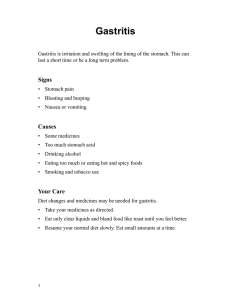
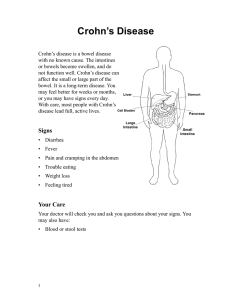
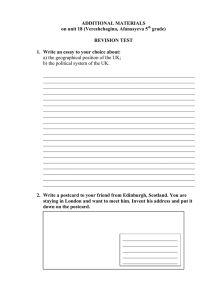
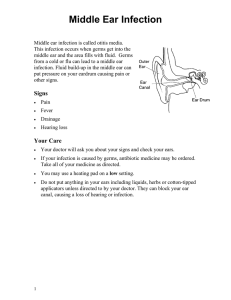
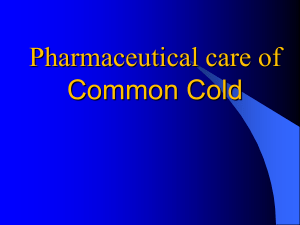

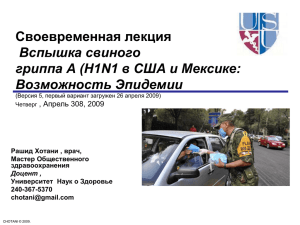

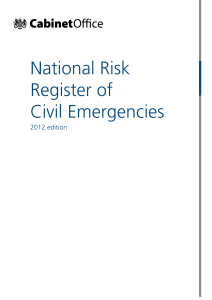
![[William G. Cvetnic, Eduardo Pino] USMLE Step 2 CK(z-lib.org)](http://s1.studylib.ru/store/data/006259272_1-482f828bbb6e23525f5cda7c04896cf8-300x300.png)
